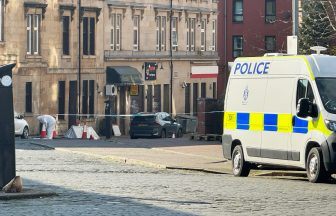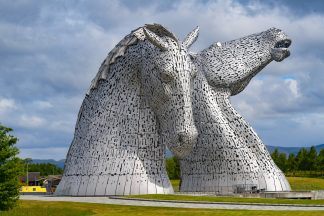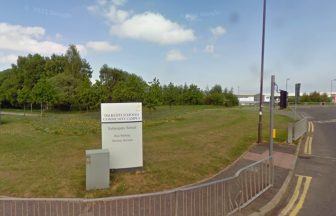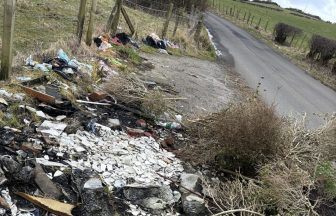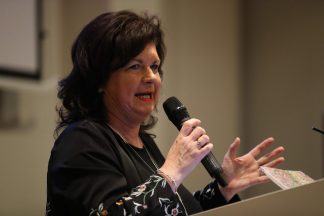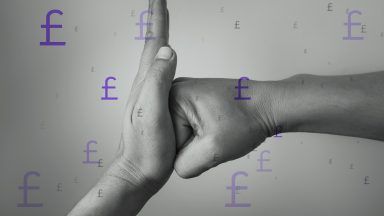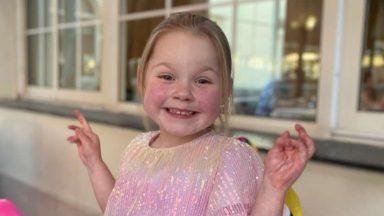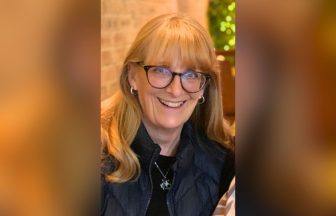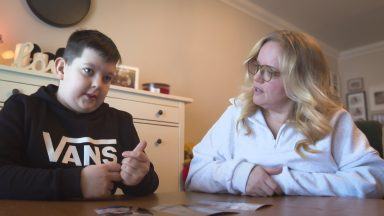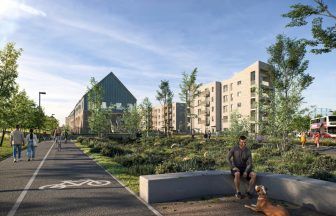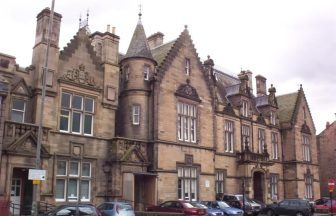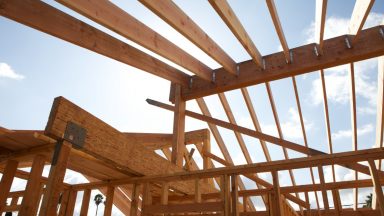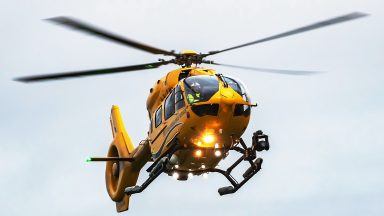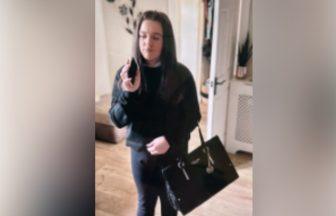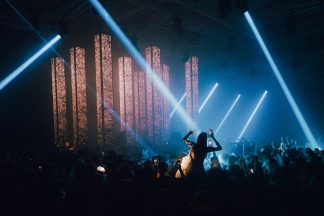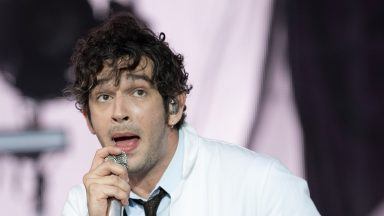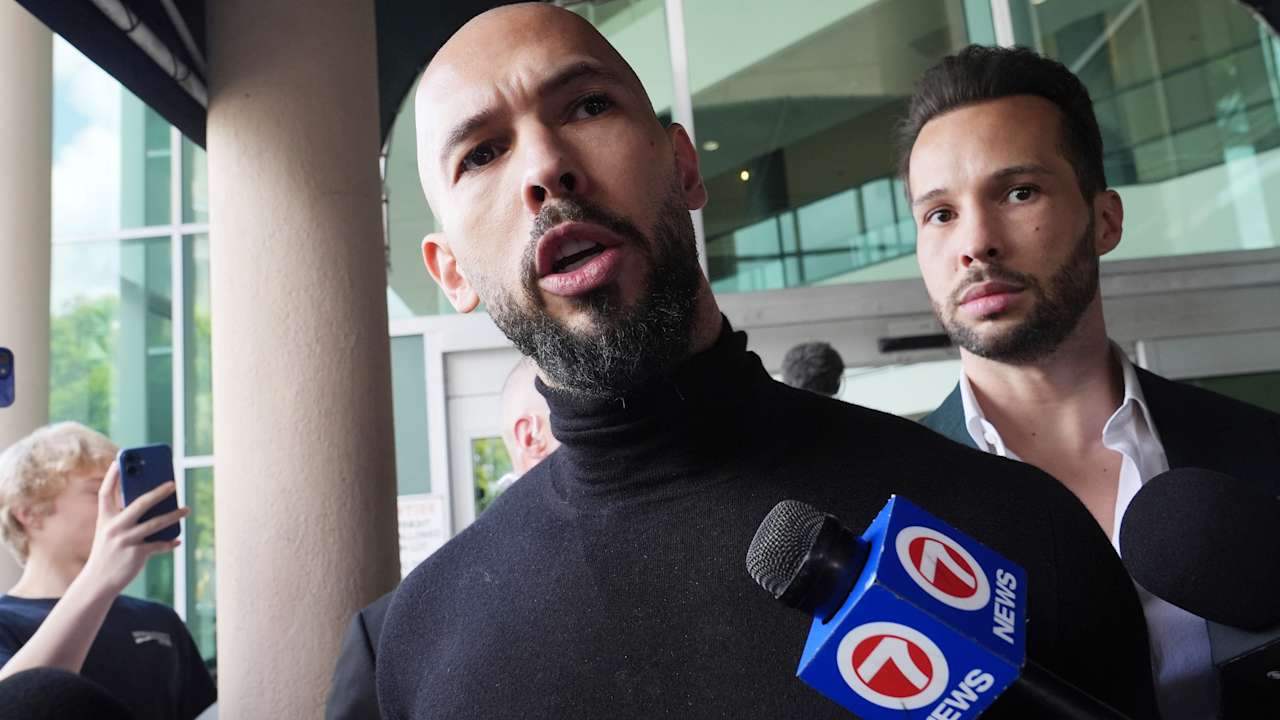Heritage chiefs have warned Edinburgh’s World Heritage Site status could be put at risk by the revival of the city’s festivals.
The Cockburn Association blasted the ‘festivalisation’ of Edinburgh and claimed the city could follow Liverpool in being stripped of its coveted heritage status.
The group said a ‘thoughtless and short-term approach’ to events will ‘only hasten the day when we [Edinburgh] join Liverpool on the international naughty list’.
Chairman Cliff Hague claims cultural events have been allowed to ‘take over the city’ amid warnings over the ‘commodification of civic spaces’.
But Fringe bosses hit back at the claims saying the heritage body’s fears about the city’s world heritage status as ‘misplaced’.
Edinburgh’s summer festivals attracted a record audience of more than 4.4 million in 2019, when more than 25,000 performers appeared in around 5000 events.
Although there are only around 1100 events being staged in up to 150 venues this month, the Cockburn Association predicts a ‘strong push to get back to normal’.
Writing in the journal Scottish Affairs, Mr Hague said: “Festivalisation is about prioritising the festivals business.
“For example, local regulatory processes are relaxed or sidestepped.
“Because the festival uses are temporary they can be nodded through: painted plastic elephants can circle the skies in the ‘outstanding urban landscape’ that is integral to a World Heritage Site defined as having outstanding universal value by its authenticity.
“Objections can be washed away in waves of populist hedonism.
“Who wants to go back to bible-black Presbyterian Edinburgh rather than hear Lewis Capaldi sing in Princes Street Gardens with the castle as the backdrop?
“Hopefully, the crisis created by Covid can be overcome.
“The future of Scotland’s capital will then be at stake.
“The virus exposed the vulnerability of festivals and tourism to unexpected shocks, while also highlighting the value of our shared public spaces, especially for those living in accommodation lacking private garden space.
“It showed why public health and wellbeing matters, and how deep seated inequalities are.
“Yet there is already pressure to get ‘back to normal’ as soon as possible.”
Writing in Product magazine, Cockburn Association director Terry Levinthal suggested cultural events had been allowed to bypass the planning system in Edinburgh.
He said: “The underlying trend is one of ambivalence and decay which, unless reversed, may well result in Edinburgh being registered as world heritage at risk.
“We could just shrug our shoulders and dismiss breaches of planning control.
“If we do so, are we not just accepting the commodification of civic spaces?
“Are we saying that big corporate events justify putting the city’s planning system to one side?
“Do local communities and businesses have no say in what happens in their neighbourhoods?”
But Shona McCarthy, chief executive of the Fringe Society, said the current level of debate over the future of the festivals was ‘crude beyond belief’.
She said: “I don’t want to get into a battle.
“But I just find the mechanism for debate at the moment crude beyond belief.
“There is absolutely no space for nuance or intelligent discussion.
“For a city like Edinburgh, which has a history of the Enlightenment and great thinking, I find that depressing.
“It’s deeply unhelpful to everybody, totally unconstructive and very un-Edinburgh, in my view.
“For me, it’s all about balance.
“We want to see a level of activity in the city centre that everybody is happy and comfortable with, but also have more things popping up in other places.
“We’re seeing some of that this year and it’s really exciting.”
Francesca Hegyi, executive director at the Edinburgh International Festival, said: “The festivals have been running for 75 years.
“They’re wound up in the identity of the city and people around the world have heard of Edinburgh because of them.
“It would be great to have a broader conversation with the city, residents, businesses and visitors about the role the festivals, and arts and culture more generally, play in Edinburgh.
“Every city is thinking about how it recovers after Covid. Culture has got to be a really important part of that in Edinburgh.
“We try to bring in the landscape of the city as a really important element of the festival.
“The festival is special because the backdrop of the city is so stunning, whether it is the castle, Arthur’s Seat or the New Town.
“It wouldn’t be the same if it wasn’t for the intrinsic assets of the city.
“We’re not a city that stopped living and evolving in the 19th century.
“We’re city that has to look forward in the 21st century.”
“We have to be really careful that we have a platform to say ‘this is good, but this isn’t’ and there is a really healthy way of having that discussion and way of managing it as opposed to ‘bah humbug’ or ‘do what you like’.
“I just feel the conversation has gone a bit binary at the moment.
“I’d hate to see culture being perceived as a mechanism to generate tourism pounds.
“That’s not why any of us is in it.”
“It was already the case before Covid hit that the festivals wanted to make it clear that we valued the quality of experience over the volume of experience.
“That message is just being reinforced as we come back.”
Follow STV News on WhatsApp
Scan the QR code on your mobile device for all the latest news from around the country


 iStock
iStock